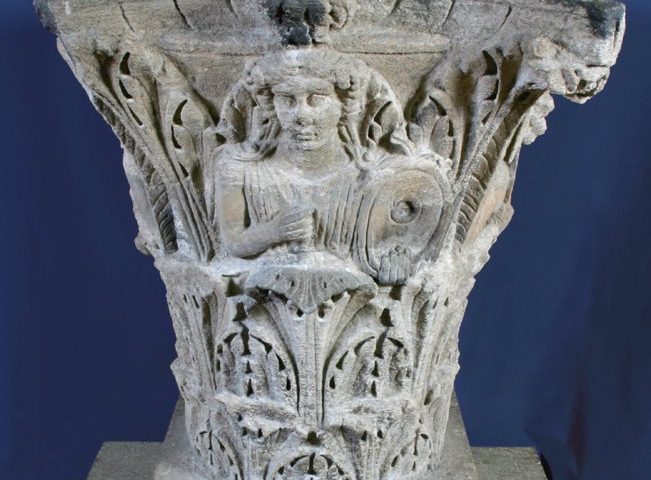Blog post by Samantha Fryer Ward
Local vineyards and winemakers are preparing to celebrate English Wine Week from June 18th. This festival may be very new to the calendar, but the roots of English wine run all the way back to Roman Britain, and perhaps even before.
Although the Celtic tribes mainly brewed beer, in southern England archaeological discoveries of wine amphora and silver wine cups in the British tombs of Belgic Chieftains from the 1st century BC(1) indicate that wine was part of their culture at least.
There is little evidence that vineyards were planted in Roman Britain, and the established trade routes across the Roman Empire would ensure that ex-pat Romans could still enjoy a cup of their favourite Falernian wine. But wine was part of the Romano-British way of life.
In Corinium Dubonnorum wine would probably have been an aspect Roman culture and life that would have been introduced to the local Britons after the invasion in 43 AD. And there are artifacts in the Corinium Museum that reflect this. The Four Seasons Mosaic and the Corinthian Capital of the Jupiter Column both contain images of Bacchus, the Roman god of wine.
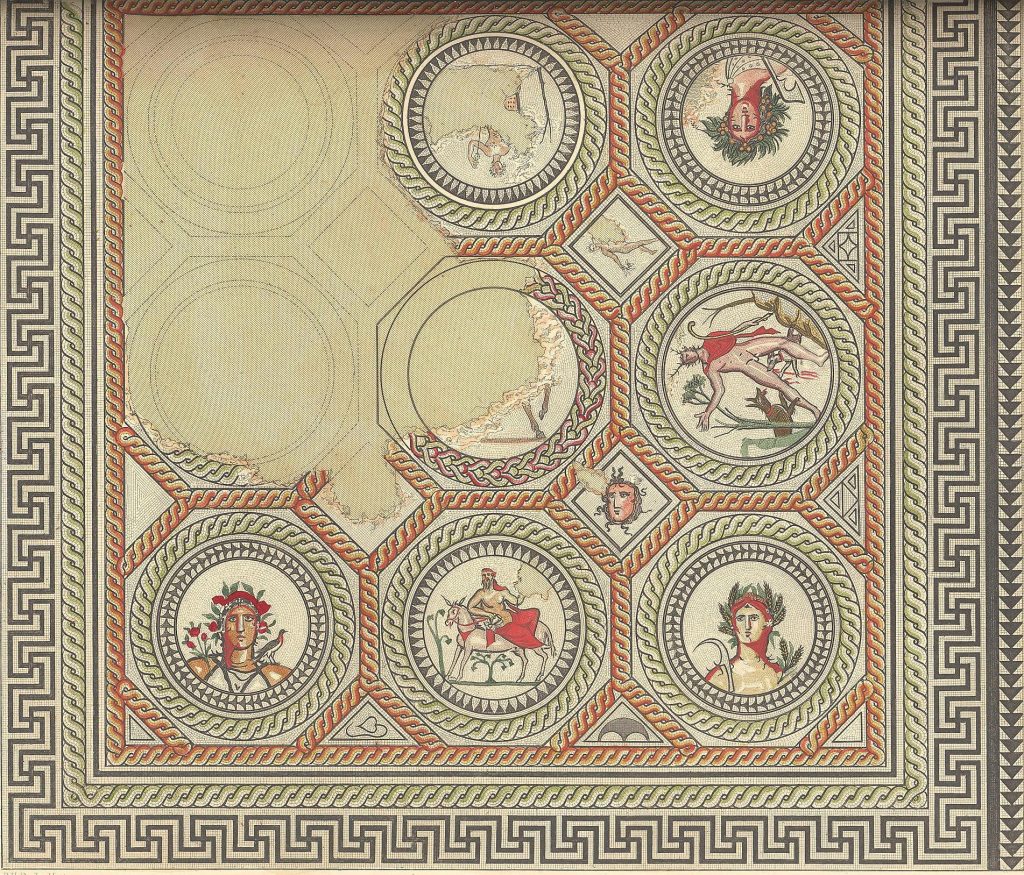
Seasons Mosaic from Buckman and Newmarch, 1850
The Four Seasons Mosaic, found in Dyer Street in Cirencester, could well have decorated the floor of a Roman Triclinium (dining room), where an influential couple may have entertained important guests and celebrated the various Roman festivals with a cup or two of wine.
On the Jupiter Column, which stood in the heart of Corinium’s official public space: the Forum, Bacchus is placed with other figures who represent wine and festivities. Ambrosia and Silenus could perhaps, along with Bacchus, be a call to embrace the bacchanalian approach to life. According to Mythopedia(2), “Romans believed that Bacchus operated through inducing a state of drunkenness into his vessels; this state freed the inebriated from social conventions and allowed new ways of thinking.”
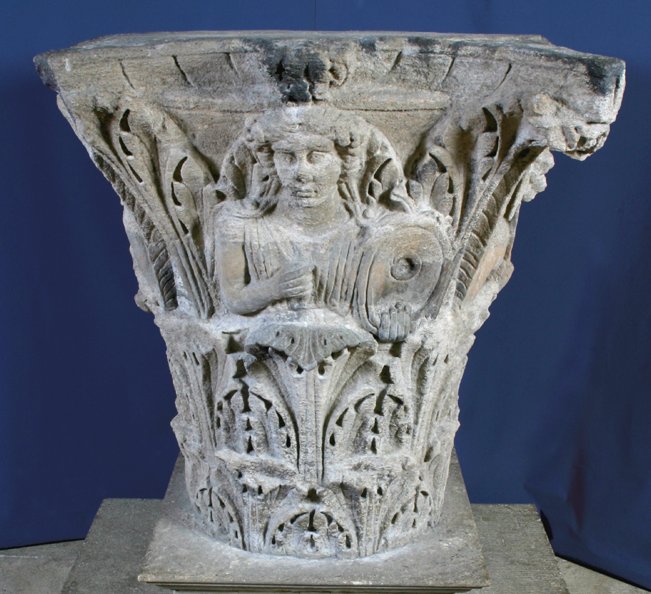
Jupiter column, Bacchus
New ways of thinking are perhaps not such a new thing to call for in government and the public sphere! Maybe to provide balance and encourage people to keep some focus on the business in hand, opposite him is Lycurgus, the mythical king of Thrace who banned the worship of the Greek god Dionysus (on whom the Roman Bacchus is based). To learn more about Corinium’s Jupiter Column, read our blog. Or why not pay a visit to the museum?
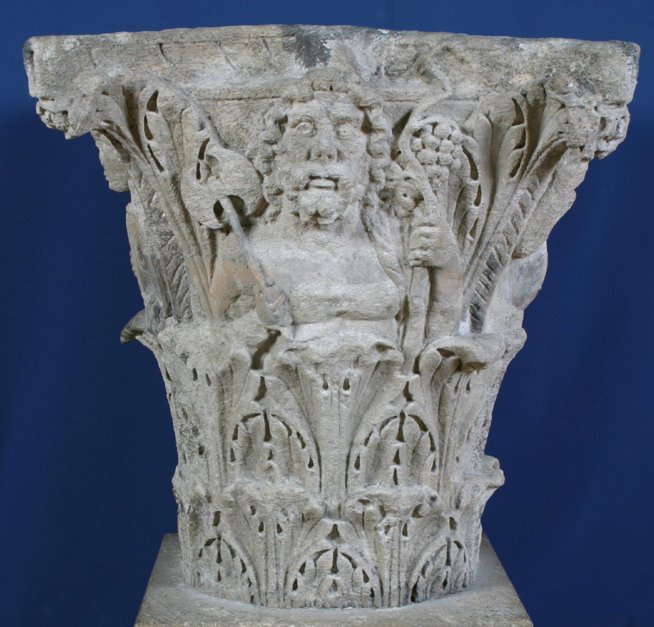
Jupiter column, Lycurgus
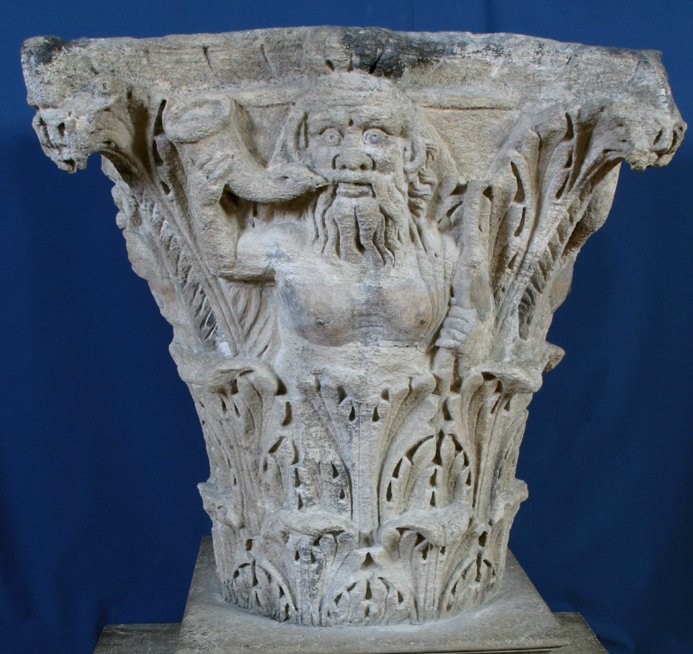
Jupiter column, Silenus
The process of making Roman wine was not hugely different to winemaking today. Immediately after the grapes were harvested, they were crushed by foot. Skins were removed to make white wine or left in during fermentation for red wine. The juice was placed in huge terracotta pots lined with beeswax and buried in the ground, with only the neck and mouth of the pot showing. Unlike the sealed wooden barrels or steel vats we make wine in today, Roman wine pots were often left open during fermentation, before the pots were sealed with clay or resin.(3)
Romans would often mix their wine with water (sometimes seawater!). Honey was added to make a sweet mulsum wine, or spices were added, I suppose much like our mulled wine.
Today, English wine is an established and ever-growing industry. But its links to our Roman past are still there. One of the real success stories of English wine is actually a German-hybrid grape called Bacchus. This vine is well-suited to our soil and climate, and it is one of the main grapes grown here.
Several vineyards have sprung up near Cirencester, including Woodchester Valley Vineyard near Stroud, where there once stood a Roman villa, and Poulton Hill Vineyard, just off the Roman Ermin Street (now the A419), where a hoard of Roman coins was found in recent years.
Who is to say that some homesick Roman, surveying the undulating land of the Cotswold hills around his villa or estate, did not think to plant a few vines on the sunnier slopes, just in case!
2. https://mythopedia.com/topics/bacchus
3. https://www.cbc.ca/natureofthings/features/what-does-a-two-thousand-year-old-wine-taste-like

